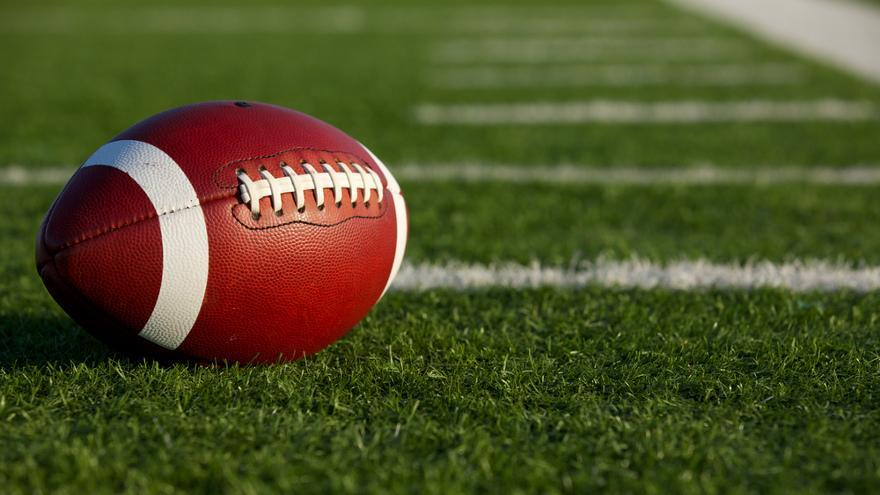With deep roots in college sports, NIL policy could bear fruit for auto advertisers

By subscribing, you agree to receive communications from Auto Remarketing and our partners in accordance with our Privacy Policy. We may share your information with select partners and sponsors who may contact you about their products and services. You may unsubscribe at any time.
CARY, N.C. –
If you have tuned into the start of college football, you may have noticed something new about the Dr. Pepper “Fansville” commercial.
This particular one features Clemson quarterback D.J. Uiagalelei, a move made possible by the NCAA’s new policy and state-by-state laws that allow student-athletes to benefit from their own name, image and likeness.
While some top-tier athletes are slinging soda (Uiagalelei) or Cajun chicken (North Carolina’s Sam Howell inked a deal with Bojangles), there has already been some movement in automotive, as well.
Ohio State quarterback Quinn Ewers has teamed up with Ricart Automotive, headquartered in the Buckeyes' home town of Columbus, in a deal that will also involve a charitable element with the A Kid Again organization.
Miami quarterback D’Eriq King signed an NIL deal with College Hunks Hauling Junk and Murphy Auto Group. The latter has stores in Georgia, South Carolina and Florida.
“July 1st is the start of a new way of doing business for college athletes. With partners like College Hunks Hauling Junk and Murphy Auto Group working with athletes on the NIL contracts, they will help support the athletes in maximizing their marketing potential and future income,” the companies said in a July 1 news release about the deal.
Subscribe to Auto Remarketing to stay informed and stay ahead.
By subscribing, you agree to receive communications from Auto Remarketing and our partners in accordance with our Privacy Policy. We may share your information with select partners and sponsors who may contact you about their products and services. You may unsubscribe at any time.
Two weeks after the NCAA’s new policy went into effect, Auto Remarketing connected with Andrew Judelson, executive vice president at LEARFIELD, a marketing conglomerate that works as the commercial arm for more than 200 schools.
At that time, it wasn’t clear how the auto industry would utilize the new NIL policy for marketing purposes. And perhaps it still isn’t 100% clear to what degree automotive will utilize advertising partnerships with college athletes.
But as the above moves illustrate, the wheels have started turning.
“I couldn't tell you today how the auto industry is going to specifically use student athletes related to the NIL ruling,” Judelson said in the mid-July interview.
“What I will say is a major national partner like Nissan, who leverages us at the Tier 1 level in support of their Heisman platform, you might see them not just lean in with former Heisman Trophy winners, but you potentially — I don’t know if this is the case — you could see them start to think about marketing current Heisman hopefuls during the season,” he said.
Within automotive, however, the opportunity for many college athletes might be more localized. In other words, you may be more likely to see your team’s quarterback or point guard pop up in an ad for the local dealership than in a national spot for an automaker.
Case in point, the relationship in Columbus between Ricart and Ohio State’s Ewers.
“This is a personal opinion based on working in professional sports and entertainment and now amateur athletics the last eight-and-a-half years: I see the student-athlete opportunity to be more viable at the local level than necessarily at the national level,” Judelson said.
“And the reason I say this is, I believe that every so often there's a Trevor Lawrence or a Joe Burrow who has national profile, but generally speaking, these student-athletes, their profile is at the school level in association with the school,” he said.
“And that's where the relevance resides and I surmise more where the marketing opportunity resides for them. That doesn't mean that there might not be campaigns that national brands look to leverage,” Judelson said.
However, the majority will likely happen at the local level, he said.
“Time will tell. We're going to make sure we're in the conversation helping our university partners navigate this. If there's a commercial opportunity that one plus one, meaning school plus athlete plus brand equals five, we would love to be a part of that. We also want to make sure no one's rights are infringed upon in that process, also,” Judelson said.
Where does it go from here? That’s to be determined.
However, there certainly is a deep lineage of automotive advertising and partnership in college athletics.
Go to most any college football stadium and you’re likely to see branding of an automaker or local dealership. There’s the aforementioned Nissan partnership with the Heisman Trophy. AutoNation, the nation’s largest dealer group, was the previous sponsor of the Cure Bowl. You might have seen auto industry vendors, for example, sponsor the halftime TV coverage.
The list goes on. Point is, the relationship between college sports marketing and advertising remains a deep one. Such is the case for Judelson and LEARFIELD.
"First of all, the auto category is one of our bellwether categories at Learfield,” Judelson said. “One of our top five categories across our portfolio. I think the interesting thing about our platform and proposition is, we're national in reach and scale. We're very regionally relevant and ultimately we're down to the school level … the auto industry really values our platform because they can tap into it in their world from a Tier 1, Tier 2 and Tier 3 perspective.”
And for auto advertisers, the same tiered approach could prove fruitful when it comes to working with college athletes.


